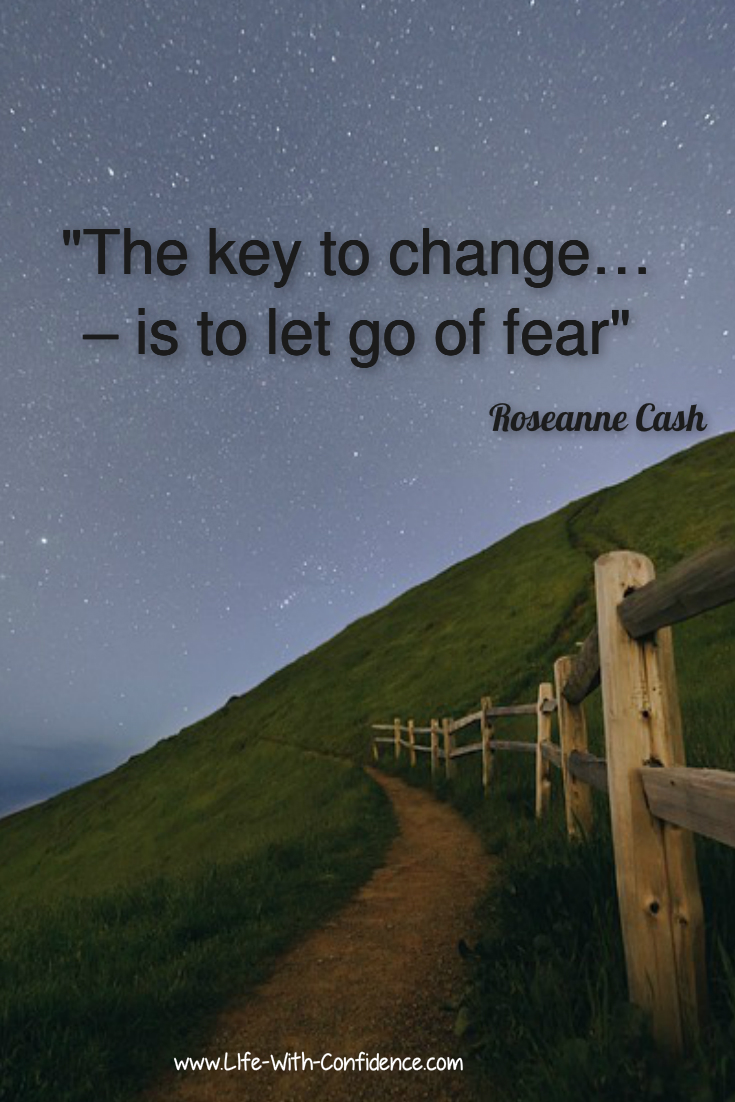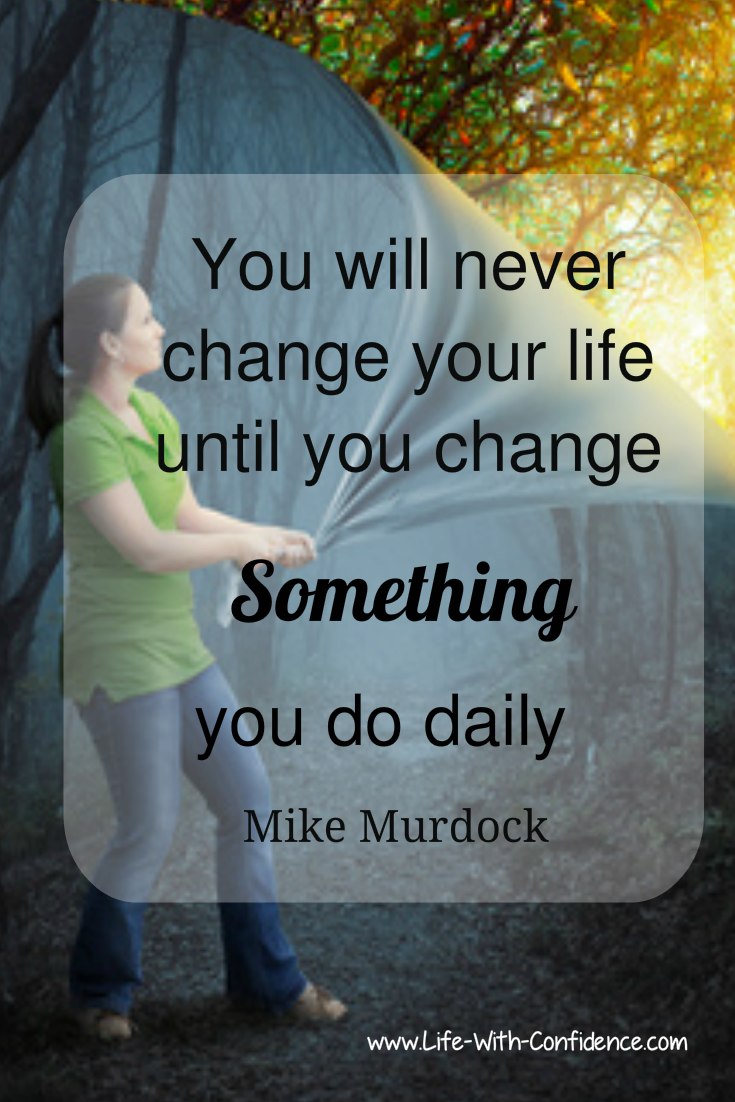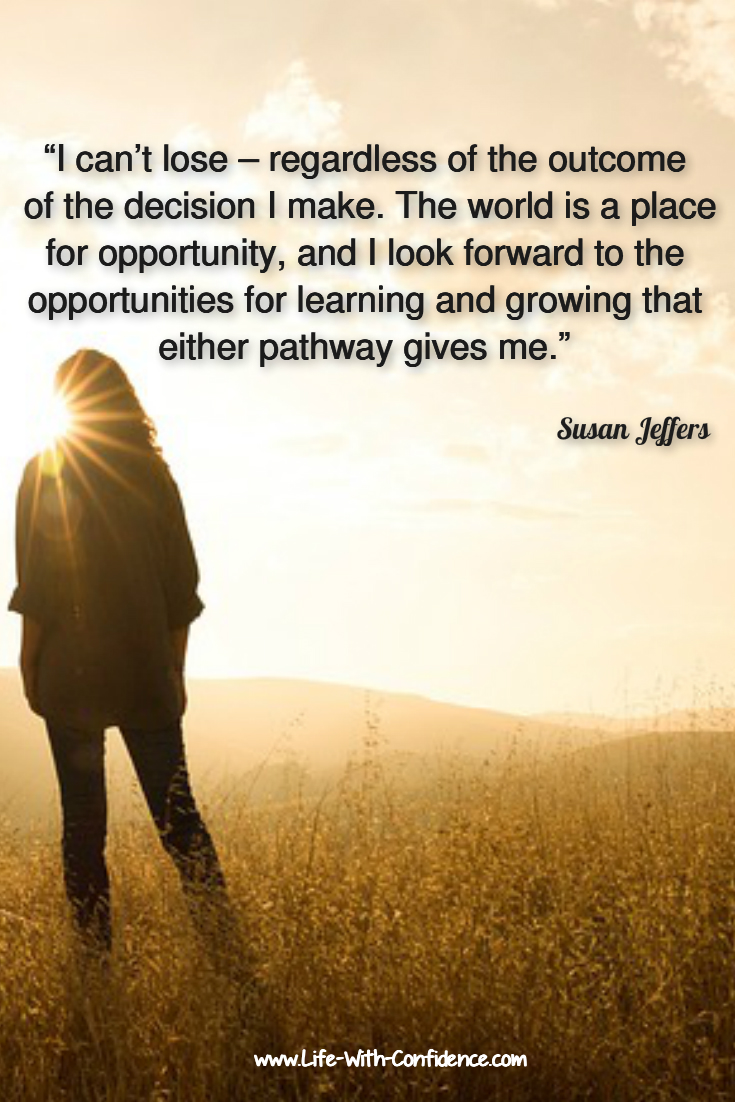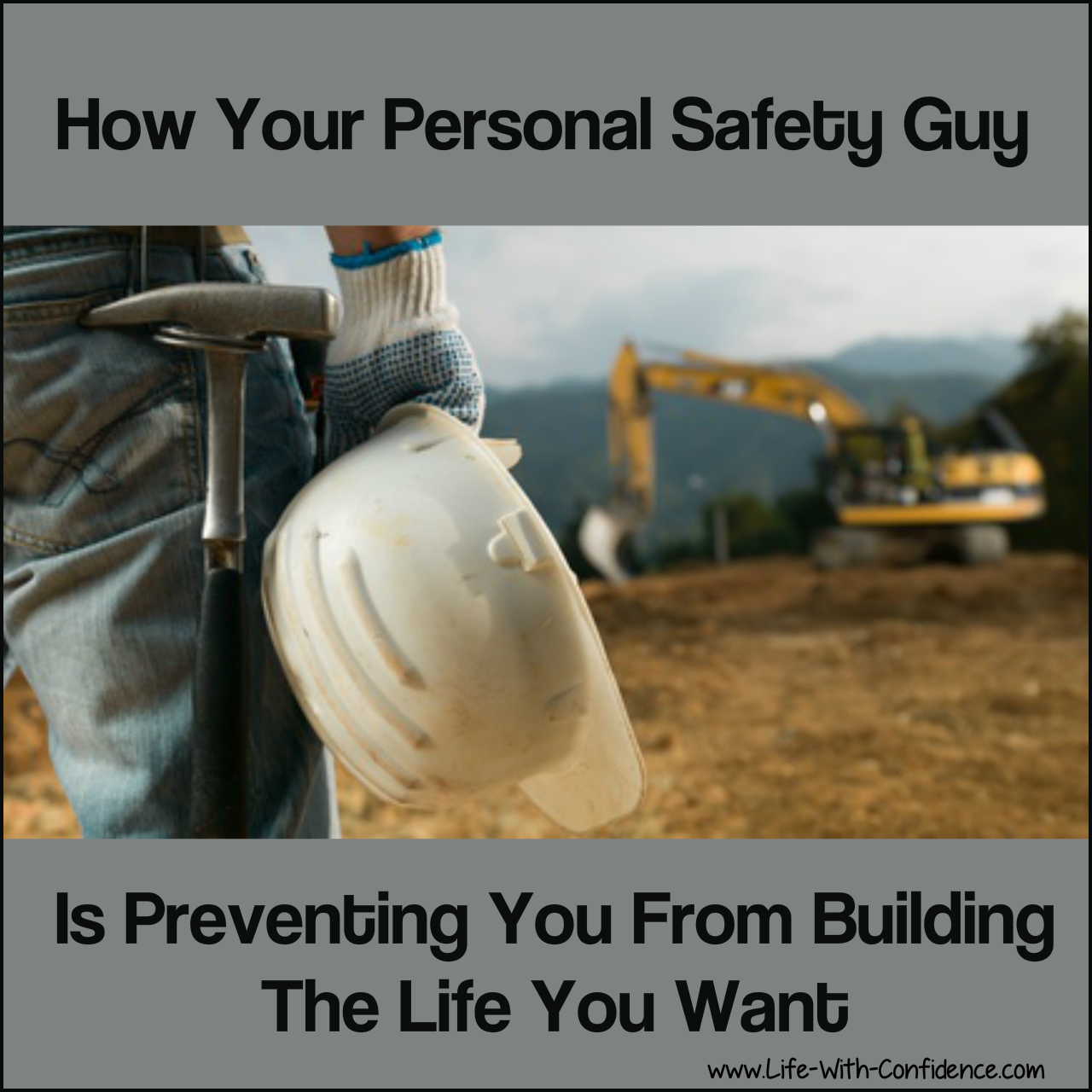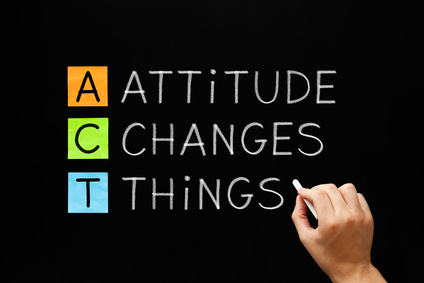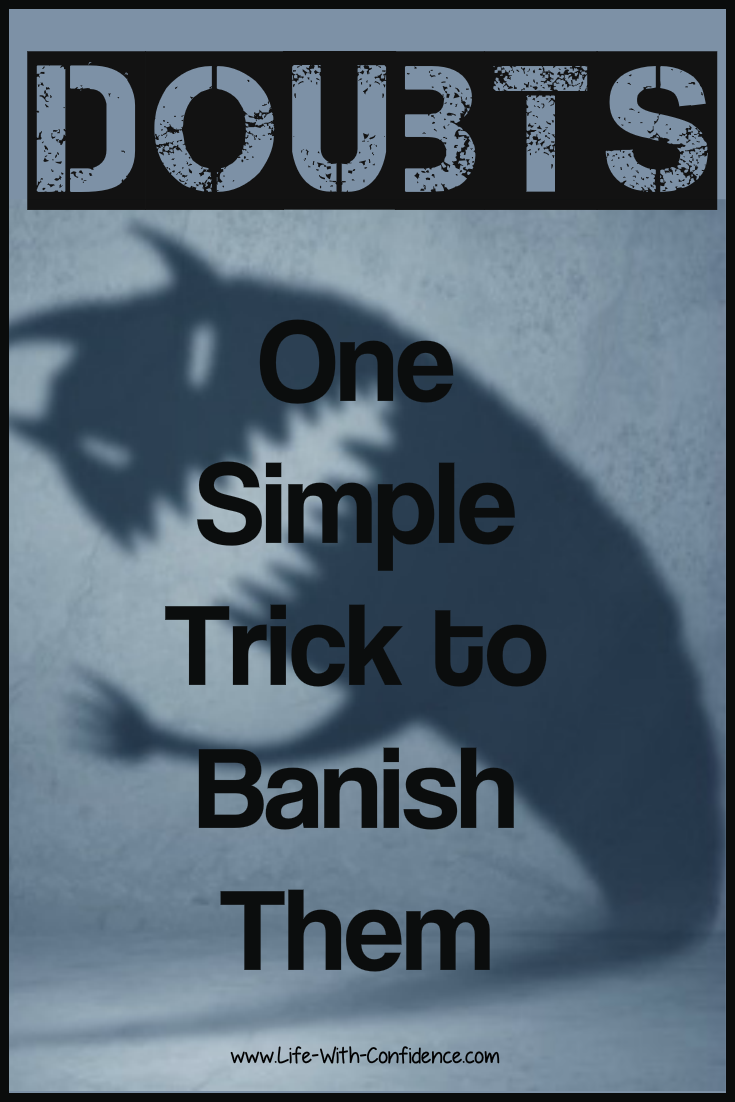Life Change - 6 Reasons Why We're Afraid to Change
by Catherine Pratt
www.Life-With-Confidence.com

The thought of making a life change can be so intimidating that even though you want to be the master of your own destiny you'll end up doing nothing or settling for less than you deserve simply because you're so afraid of that change.
This a tragedy when you think about it. You've let fear stop you from living your life to its full potential. You'll forever live with the haunting question of "What might have I achieved if I hadn't let fear get in the way?"
So, let's look at the 6 main reasons you can end up paralyzed with fear and then figure out what you can do about it so you can live the life of your dreams:
1. Fear of the Unknown
I love the following quote by Rosanne Cash:
She makes it sound so easy and in some ways it is and sometimes it feels like the hardest thing you'll ever do. Either way, fear is definitely one of the main reasons why you don't make any changes in your life.
One of the biggest fears is the fear of the unknown. As I talked about in my article why your personal safety guy doesn't want you to make any life changes, your mind fears the unknown because it considers what is known to be far safer. You might not like it but at least it's familiar and you know what to expect. As for the unknown, your imagination will come up with dozens of potential things to fear about that. And, it's all done to keep you safe.
Once you know this, then it's easier to understand why you're suddenly coming up with all these fear thoughts. With this knowledge, you'll then be able to notice when you have these fear thoughts, understand why they're happening, and be able to process them so you can let them go.
For example, when you hear yourself say, "You'll fail. It'll be a disaster. You'll get hurt," you know your safety guy is hard at work trying to keep you safe. As soon as you realize this, you won't keep thinking about the thought and believing it because you know it's a safety mechanism which you can override.
You can then start thinking about the positives that may happen if you make this life change. You can start to focus on the good that will come instead of what "might" happen.
One easy way to notice when this fear of the unknown is happening is when you find yourself playing the “what if?”
worrying game.
• What if I make a mistake?
• What if it’s worse than what I have now?
• What if I fail?
At this point, you've become focused on imagining what if that fear does come true. This is the stage where you end up worrying yourself into action paralysis. You'll dump any thoughts of changing your situation for the better and you'll stay with everything exactly the same "just in case" one of those fears could come true. You'll think, "Safer that way".

It'd be nice if we had crystal balls so we could see the consequences of our actions but we don't so the only way past this is to face your fear and make educated decisions. Educated meaning you do your research and plan things as well as you can. You move towards your goal even though you still have fear thoughts.
Otherwise, if you let it, your imagination can dream up a never ending
supply of terrible things that could happen. But let’s think about it.
You have the ability to imagine the absolute worst thing that could
happen so that means you also have the skill to use your energy to
imagine the absolute best thing that could happen. It’s a matter of
focus. Why do you waste so much time imagining the worst when there’s
just as much of a chance of the best outcome happening? All you have to do is overcome your fear.
In Susan Jeffers book, Feel the Fear and Do It Anyway, (#ad) she says that whatever option you choose will provide you with new opportunities and surprises that you may never have imagined happening.
As she says, there is no wrong decision, there’s just different opportunities. It makes it far easier to face the unknown if you think of all your options as exciting and worthwhile. You just need to decide which one you want to do right now. There is no wrong choice. Doesn't that make you feel better when you think of it that way?
2. Doubt Yourself
When you're contemplating making a life change, the next fear you'll most likely start to consider is whether you'll be able to do it. If you start to compare yourself to others already doing what you want to do, you may start to think, "I'd never be able to do that. That's too much."
When you look at the final goal and consider all the details surrounding it, it can seem a
lot bigger and harder to accomplish than you first thought. The task seems overwhelming
when we look at it in the big picture. You might question yourself and say, “Who do I think I am thinking I can do that?”
If you want to achieve great things or even just achieve inner peace, sometimes you're going to have to accept that you need to step out of your comfort zone and try something totally new. At least you'll have tried. You won't have to live with the regret that you’ll never know what you could have been if you’d been able to just take that one step forwards.
You'll also learn so much by trying different things. Even if you only end up learning that you don’t like it, you've learned more about yourself and where you want to go in your life.
You'll have gained new knowledge with which to use as stepping stones for the future. Usually afterwards as well, you'll realize, “It wasn’t anywhere near as bad as I thought it would be.”
You've also increased your self confidence in having another situation under your belt that you were able to handle successfully.
Don't Compare Yourself To Others
The first step towards leaving your comfort zone is to avoid comparing yourself to others. You can look at others and see them as, "Yes, I'm going to be able to do that too" and use them as inspiration. But, don't get frustrated because you're not instantly at the same level as them.
Also, remind yourself that every expert was once a beginner. They were in your shoes at one point too and they started by just learning one thing after another until they became the people you now look up to. So, it's doable. Absolutely it is.
Only compare yourself to yourself. See how far you've come.
The next step is to break the goal into smaller tasks. Learn all you need to know for each task. This way, you're slowly putting it all together. You can do small tasks. You know you can. And, how exciting will it be when you look back and see how far you've come.
Don't Wait For Validation
One other factor in self doubt to be aware of is that there's a tendency to wait for validation from others before you fully commit to something. What I mean by this is that you try something, for example painting or writing a story, then show it to someone to see their reaction. If they like it, then you'll like your work too. If they don't like it, then you won't like it either and consider it a total failure.
What you need to do is validate yourself. Have a vision in your mind of who you want to be (strong, confident, writing powerful stories for example) and keep that in your mind as you go about learning all the skills you need to make that vision come true.
If people doubt you, refer back to your vision, and keep going. Soon those doubters will believe in you simply because you believe in you.
Validate yourself, don't wait for others to tell you your value.
Believe in yourself first and then others will believe in you. So, don't wait for someone to tell you that you can do this. Get out there and do it. You show the way instead. Be the person you want to be.
3. Isolate Yourself and Agonize Over Decisions
Sometimes when you're going through challenging times you tend to feel isolated like you're the only person in the world going through this decision. You feel you need outside reassurance that you’re doing the right thing. You’ll ask everyone for their opinion so you don’t have to take responsibility for making the decision.
I can tell you from personal experience that the absolute hardest part of making a huge decision is during the time when I’m agonizing over it. I will make myself sick with worry and wondering if it’s the “right” thing to do. I’ll be on the fence for such a long time sometimes deciding to make that big leap of faith and other times telling myself to “be sensible” and to work with what I have. I slowly drive myself and everyone around me completely insane.
But the moment that I finally take the step that makes my decision official, I’ll suddenly feel like a huge weight has been lifted from me. I’ll then feel quite liberated and excited about my choice. It’s the agonizing part that can stop you in your tracks though. It can be the hardest part of making a big decision. It’s much easier if you can make the decision and then move forwards as soon as you can.
Do An Internal Test
Sometimes I find it helpful to do an internal test when I'm trying to make a decision. I sit in a quiet place, close my eyes, and then imagine making one of the decisions I'm thinking about. How does that feel? Are you excited or repelled by the idea? Now, think about your other option. Are you excited or repelled by the idea? Always go for the choice that excites you.
Listening to your gut is a great way to get a better idea about what internal conflicts you may be dealing with.
4. Forget That You Always Have Options
Sometimes when you’re trying to make a big decision, you think you only have one choice if you don’t want to accept the current situation. For example, you can stay in a job you hate or you can quit and be unemployed. And if you’re like me you’ll add things like “unemployed and starving to death and I'll never be able to find another job.”
I’ll mentally paint myself into a corner (motivated by fear or uncertainty) and feel there's no way out. I’ll feel like I have to stay in the situation because there is no other option.
The truth is there is
always another option. Sometimes it can take a little brainstorming to
come up with a list of possible solutions but rarely are you truly ever
without any choices.
5. Focus on the External World
Another problem people face when contemplating change is that we tend to focus on external things to define our identity and worth (what kind of job we do, what kind of possessions we have, how much we make). We put an emotional weight on stuff like this. If we don’t have the latest t.v. system, we feel like a failure. We can also fear the risk of losing all our possessions. It’s who we are. People always ask us, "what do you do?". When we answer, our job is a huge part of our identity.
A much more important thing you should focus on is the value of all the relationships you have and how you can help others - it's really a wonderful symbiotic relationship. When you help someone (and see their appreciation or know that you are helping them) you feel good yourself - and it's a more genuine feeling of contentment than buying the latest gadget. It provides you with a much greater sense of self worth.
Also, being able to live the life you truly want is far more important than feeling trapped in a job you hate because you have to pay the credit cards for all the stuff you’ve bought. I think I can also guarantee, before you take your final sleep (which I'm sure will be when you're at least 105) you'll be thinking about the people that have touched your life, and not the corner office you had, nor the car you drove.
6. Handcuff Yourself to Stuff
Along with focusing on the external world comes the fact that you may be clinging
to certain possessions, statuses, and perks you've been given along the
way as some sort of safety net. You start to fear losing something if you take the risk of making a change.
People will "handcuff" themselves to jobs they hate with thoughts like “I'll stay until I use up all my vacation days" or "I’ll stay until I’ve got my pension". It’s the “I’ll stay until…” mentality. There's a lot of people who won't leave a job because of the promises of holidays, pension and severance pay. “If I leave I won’t get 3 weeks of vacation anymore.”
Think about it. When you’re 80 years old, are you going to be happy that you wasted your life for a few weeks of vacation? Also, it’s limiting thoughts like these that keep you trapped in situations you don’t want to be in.
Turn it around and if something like vacation really is important to you, you can bring it up in any interviews you go to. At least you won’t be letting a crutch stop you from facing the fear of change. It’s far better to keep the big picture in mind of what do you really want out of life? You need to keep moving towards that and not getting caught in the mental safety nets along the way.
You Don't Have To Settle For Whatever Happens
The worst part about being afraid of change is that you can end up settling for whatever happens. It seems less scary that way. The truth is that this is a far more frightening way to live because you don’t have the feeling of being in control of what happens to you and you live in fear of what might happen. Having the confidence to take action in the face of fear not only provides you with a sense of control, ultimately it will also provide you with a life full of purpose and joy. And isn’t that really what we’re all trying to achieve?
I'll leave you with one final quote from Ravinder Singh which I think explains why it's so important to be willing to face your fears. Don't allow your fear to be stronger than your desire to live to your full potential.
 "Not sharing your gifts with the world is the greatest disservice to yourself and humankind" - Ravinder Singh Tweet This
"Not sharing your gifts with the world is the greatest disservice to yourself and humankind" - Ravinder Singh Tweet ThisRelated Articles
Fear of Life Changes?
How your personal safety guy could be preventing you from living the life of your dreams.
Overcoming Fear
To overcome fear, think of it like a double-edged sword. Read more about
the two sides and how to choose the side that will enable you to slash
your way to success.
Why You Need To Learn To ACT
Why do you need to learn to Act? Because ACT stands for "Attitude
Changes Things". It's about being aware of how your own attitude
determines whether you'll be successful or not. Read the easy ways a slight change in perspective can completely change your attitude.
Stop Struggling
Discover how you're getting in your own way.

